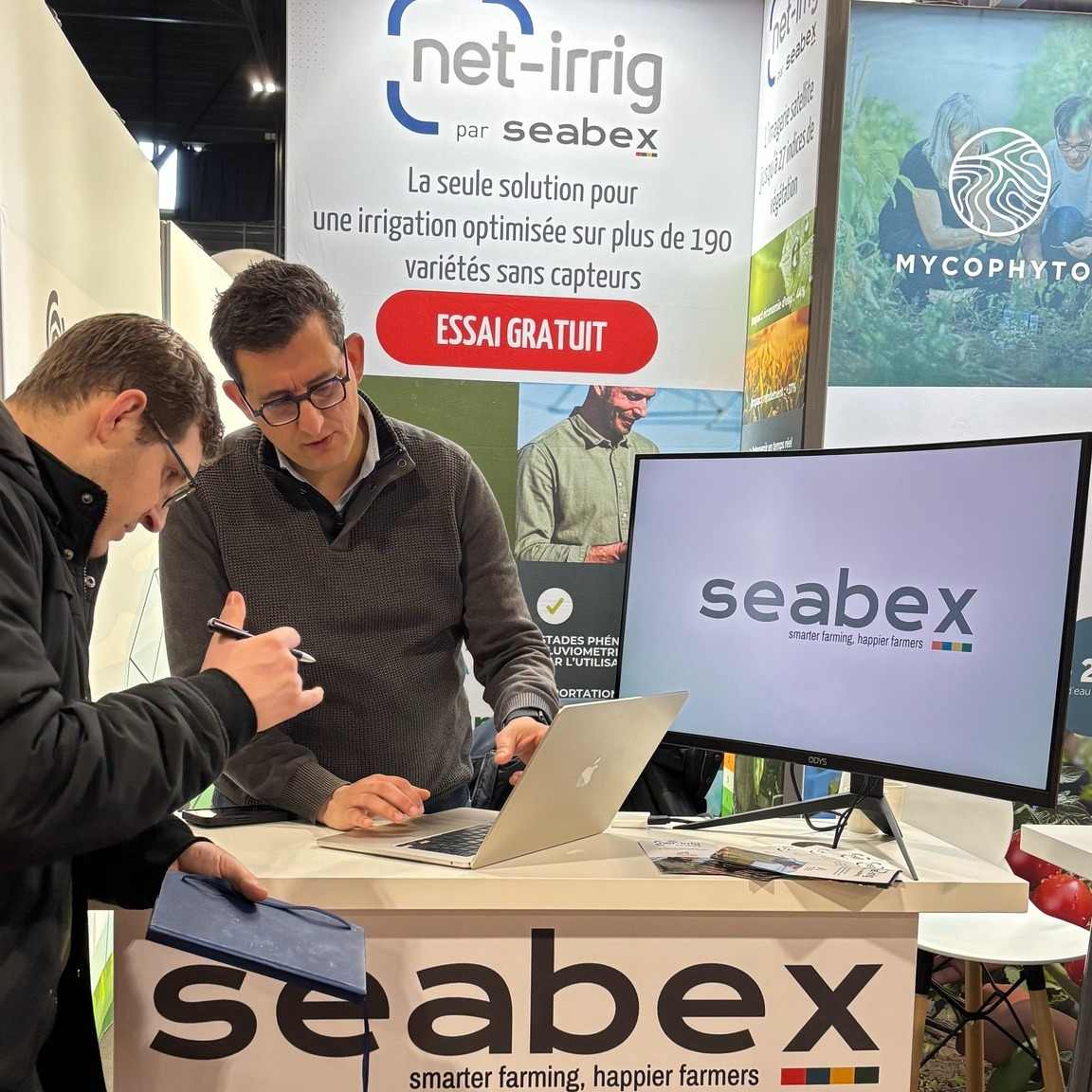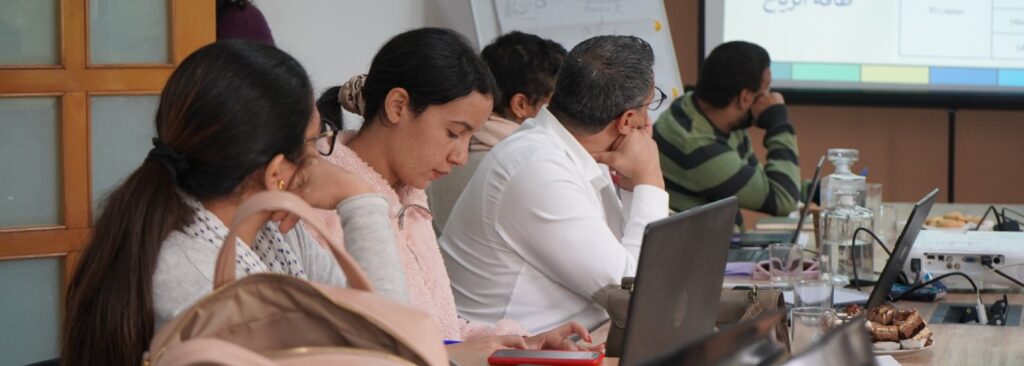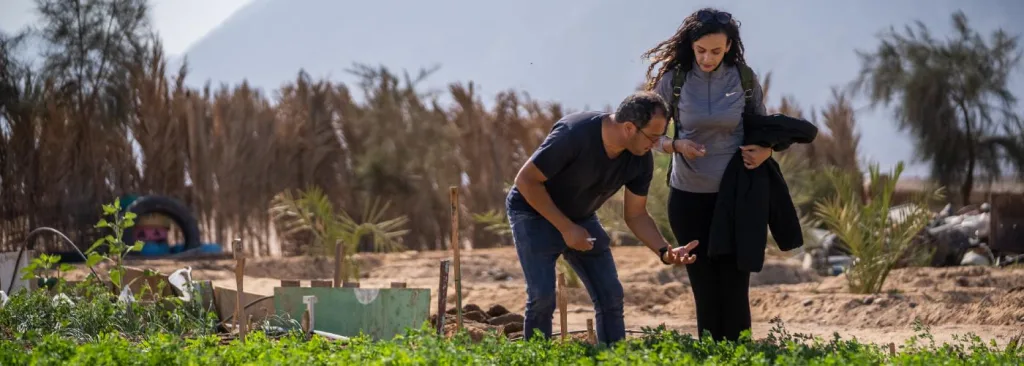In a vibrant and evolving entrepreneurial arena, two Tunisian startup founders embody a new generation of entrepreneurs, combining innovation, resilience, and a bold international outlook. Coming from very different sectors – e-commerce and agritech – Dabchy and Seabex are both driven by a fierce desire to turn local initiatives into global ventures with impact.
Supported by Hivos through the Challenge Fund for a Just Transition (CFJT), they work with the Green4Youth program in Tunisia and local implementing partners Impact Partner and Flat6Labs. CFJT empowers young entrepreneurs driving social and environmental change across North Africa.
An E-commerce platform fueling women’s economic empowerment
Launched in 2016 as a personal project to unclutter closets, the online platform Dabchy offers new and second-hand items from fashion to home décor and pet supplies. The idea grew into a fully structured business by 2020; more than just a marketplace, it has become a powerful tool for women’s financial empowerment.
“What always touched me was seeing someone go all-in with this business and start earning more than they ever had before,” Ameni Mansouri, one of the co-founders, said in an interview on the Tunisian radio station Express FM.
With end-to-end support handling logistics, payments, and delivery, the platform allows users to sell directly from home. What began as an environmentally conscious gesture towards women quickly evolved into a sustainable business model and a steady source of income for thousands of people.
But scaling up required more than a solid idea. Fundraising proved to be a long, demanding journey, and as Mansouri explained, “Raising funds is more than financing; it’s a legal, strategic, and emotional marathon.”
From protracted negotiations to due diligence and complex contract drafting, the learning curve was steep. Even with legal counsel and strong documentation, unforeseen issues arose. “Even when you’re well-supported, there are always gaps. Never underestimate the legal side of fundraising,” she added.
Through experience, the co-founder realized the importance of the right financial instruments, like OCAs (convertible bonds) and SAFEs (Simple Agreements for Future Equity), tailored to the specific legal and financial context of each market.
Agritech for Climate-Resilient Agriculture
Started as a project in 2016 and founded in 2020, Seabex tackles a pressing challenge: water management for agriculture in the midst of growing climate disruption.

“We’ve lost 40 to 50 percent of agricultural production because of climate change,” notes Amira Cheniour, co-founder and general manager of Seabex.
The company developed a sensor-free tech platform that uses advanced data analytics to guide farmers. Today, it operates across more than 150,000 hectares and has supported over 5,000 production cycles, not just in Tunisia, but also in other Mediterranean markets. The startup is now expanding into precision fertilization and disease detection, with a focus on strategic crops.
But as expected, success didn’t just hinge on technology. A well-researched and contextualized internationalization strategy was key. “Internationalization isn’t just about being online. You need to understand local needs, adapt the product, and find the right partners,” explained Cheniour.
By benchmarking in similar climates, like southern Spain, the founders were able to adjust their solution to fit new markets. Cheniour also highlighted the value of accelerators, trade fairs, and institutions like Business France in building credibility and opening doors abroad.
“We realized the energy is the same no matter what the market. What matters is having the right partners and surrounding yourself with the right people.” – Amira Cheniour
Shared vision, common challenges
Both entrepreneurs have a clear vision, the ability to adapt, and a commitment to long-term growth. And they realize that fundraising, market expansion, and team building require time, energy, and relentless perseverance. But with the right strategy, a clear purpose, and measurable impact, they’ve attracted the right kind of investors—particularly those focused on sustainability and long-term value. “Our investors care about lives changed, users impacted, and growth that’s under control,” they confirmed.
This testimony highlights not only the potential of Tunisian innovation but also the critical role of programs like the CFJT in empowering women, and entrepreneurs in general, to break into competitive markets while staying committed to social and environmental goals. By providing tailored support, mentorship, and visibility, Hivos supports the transformation of bold ideas into impactful, sustainable ventures.
About the Challenge Fund for a Just Transition and Green4Youth
The Challenge Fund for a Just Transition (CFJT), spearheaded by Hivos, fosters sustainable economic growth in North Africa by bolstering Small and Growing Businesses (SGBs) within the green sector. In Tunisia, this initiative is developed through the Green4Youth program co-implemented by Impact Partner and Flat6Labs Tunisia.
Green4Youth is dedicated to empowering SGBs that reduce carbon emissions, enhance climate resilience, and promote climate adaptation. The program offers technical and financial assistance, capacity-building workshops, and expert mentorship to help these businesses scale and create meaningful employment opportunities.
Within the framework of the CFJT – G4Y collaboration, Dabchy and Seabex benefited from both financial support as well as tailored technical assistance based on the companies’ needs to expand their operations, increase their environmental impact, and help create jobs in Tunisia’s green economy.
By investing in such enterprises, CFJT and its partners are not only driving economic development but also championing environmental sustainability and social inclusion. This collaborative effort underscores the potential of green SGBs to lead the way toward a more resilient and equitable future in Tunisia and beyond.









